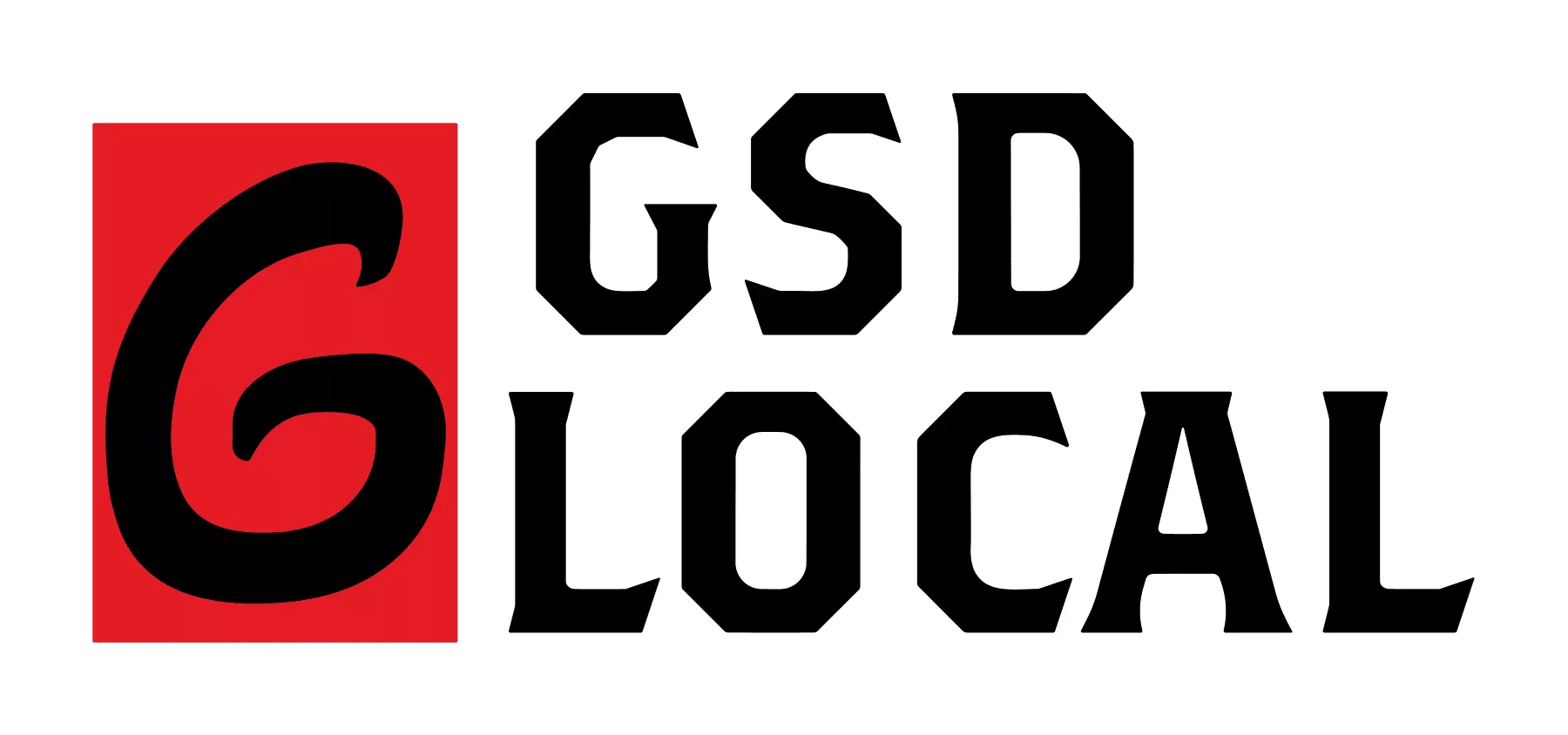TECHNICAL SEO GUIDE
JSON-LD vs Microdata: Best Local SEO Schema Format 2025
Expert comparison with code examples, implementation tips, and Google's official preferences for local business structured data

Last Updated: July 2025 | Reading Time: 10 minutes
Choosing the right schema markup format can make or break your local SEO structured data strategy. While all three major formats-JSON-LD, Microdata, and RDFa-technically accomplish the same goal of providing structured data to search engines, the implementation approach you choose will significantly impact your long-term success, maintenance efficiency, and technical scalability.
For local businesses investing in schema markup, this decision becomes even more critical. Local SEO requires consistent, accurate data across multiple touchpoints, frequent updates for business information changes, and seamless integration with existing website architectures. The wrong format choice can lead to maintenance nightmares, technical debt, and missed opportunities for rich snippet optimization.
After implementing schema markup for hundreds of local businesses across diverse industries, we've seen firsthand how format selection impacts both immediate results and long-term sustainability. This comprehensive comparison will help you make an informed decision that aligns with your technical capabilities, business goals, and local SEO strategy.
Schema Format Comparison: Understanding Your Options
Before diving into specific recommendations, it's essential to understand the fundamental differences between the three primary schema markup formats and how each approach affects implementation and maintenance.
JSON-LD (JavaScript Object Notation for Linked Data)
JSON-LD represents the most modern approach to schema markup implementation. This format uses JavaScript-style syntax to create structured data that exists separately from your website's HTML content. JSON-LD markup typically appears within <script> tags in your page's <head> section or footer, creating a clean separation between content and structured data.
The format's syntax closely resembles standard JSON, making it familiar to developers who work with APIs, databases, and modern web applications. This familiarity reduces implementation complexity and minimizes the learning curve for technical teams responsible for ongoing maintenance.
From a technical architecture perspective, JSON-LD offers significant advantages for content management systems, e-commerce platforms, and websites with frequent content updates. Because the structured data exists independently of the HTML content, changes to page layout, design, or content don't necessarily require corresponding schema markup updates.
Microdata Format
Microdata takes a completely different approach by embedding structured data directly within existing HTML elements using special attributes. Instead of separate schema blocks, Microdata adds itemscope, itemtype, and itemprop attributes to your existing HTML tags, creating structured data that's intrinsically tied to your content.
This approach can feel more intuitive for businesses and developers who prefer to see direct relationships between content and its corresponding structured data. When you mark up a business address using Microdata, the schema attributes appear directly on the HTML elements that display that address to visitors.
However, this tight integration between content and structured data creates dependencies that can complicate website maintenance, content updates, and design changes. Every modification to marked-up content requires careful consideration of the corresponding schema implications.
RDFa (Resource Description Framework in Attributes)
RDFa represents the most complex and flexible schema markup format, originally designed for semantic web applications that go far beyond search engine optimization. Like Microdata, RDFa embeds structured data within HTML elements, but it uses a different attribute system and supports more sophisticated data relationships.
For most local businesses, RDFa's complexity far exceeds its benefits. While the format offers powerful capabilities for complex data modeling and semantic relationships, these advanced features typically aren't necessary for local SEO applications and can introduce unnecessary technical overhead.
The learning curve for RDFa implementation and maintenance is steep, making it impractical for most business owners and even many web developers who don't specialize in semantic web technologies.

Why JSON-LD Dominates Local SEO
Google's clear preference for JSON-LD isn't arbitrary-it reflects practical advantages that align perfectly with local business needs and modern web development practices. Understanding these advantages helps explain why JSON-LD has become the dominant choice for professional schema markup implementation.
Google's Official Recommendation
Google explicitly recommends JSON-LD as the preferred schema markup format across its developer documentation, structured data guidelines, and official SEO resources. This recommendation carries significant weight beyond simple preference-it suggests that Google's structured data processing systems are optimized for JSON-LD parsing and interpretation.
For local businesses, aligning with Google's preferences makes strategic sense given Google's dominance in local search results, Google My Business integration, and local pack rankings. When Google states a clear format preference, following that guidance typically yields better results and more predictable outcomes.
The recommendation also suggests that future Google updates and new structured data features will likely prioritize JSON-LD compatibility, making it a more future-proof choice for long-term local SEO strategies.
Separation of Concerns
JSON-LD's architectural approach aligns with modern web development principles by maintaining clear separation between content presentation and structured data. This separation provides numerous practical benefits for local businesses managing complex websites, multiple locations, or frequent content updates.
When your business information changes-new phone numbers, updated hours, additional services, or location expansions-JSON-LD implementation allows you to update structured data without touching your website's content or design elements. This independence reduces the risk of inadvertently breaking website functionality while updating schema markup.
The separation also enables more sophisticated content management workflows where marketing teams can update website content while technical teams handle structured data optimization independently, reducing coordination overhead and potential conflicts.
Easier Maintenance and Updates
Local businesses face unique maintenance challenges with schema markup due to the dynamic nature of business information. Hours change seasonally, services expand or contract based on demand, contact information updates with business growth, and location details may shift with relocations or expansions.
JSON-LD's centralized approach to structured data management makes these updates significantly more manageable. Instead of hunting through HTML content to find embedded Microdata attributes or RDFa tags, all structured data exists in clearly defined JSON-LD blocks that can be easily located, modified, and validated.
This ease of maintenance becomes particularly valuable for multi-location businesses where consistent schema markup across all locations is critical for local SEO success. JSON-LD enables template-based approaches where core business schema can be standardized while location-specific details are populated dynamically.
Dynamic Content Compatibility
Modern local business websites increasingly rely on dynamic content generation, content management systems, and database-driven information display. JSON-LD's programmatic nature makes it inherently compatible with these dynamic approaches, allowing schema markup to be generated automatically based on database content, user inputs, or real-time business information.
This compatibility is particularly valuable for businesses with inventory management systems, appointment booking platforms, or service catalogs that change frequently. JSON-LD can be programmatically generated to reflect current availability, pricing, or service offerings without manual intervention.
The format also integrates seamlessly with popular content management systems like WordPress, Drupal, and custom-built platforms, enabling automated schema generation that stays synchronized with business information changes.

Real Implementation Examples: Side-by-Side Comparisons
Understanding the practical differences between schema formats becomes clearer when examining real-world implementation examples. These side-by-side comparisons demonstrate why JSON-LD offers superior maintainability and scalability for local businesses.
Local Business Information: JSON-LD Implementation
{
"@context": "https://schema.org",
"@type": "LocalBusiness",
"name": "Pacific Northwest Plumbing Solutions",
"description": "Professional plumbing services for residential and commercial properties in Seattle and surrounding areas.",
"url": "https://pnwplumbing.com",
"telephone": "+1-206-555-0123",
"email": "info@pnwplumbing.com",
"address": {
"@type": "PostalAddress",
"streetAddress": "1234 Pike Street",
"addressLocality": "Seattle",
"addressRegion": "WA",
"postalCode": "98101",
"addressCountry": "US"
},
"geo": {
"@type": "GeoCoordinates",
"latitude": "47.6062",
"longitude": "-122.3321"
},
"openingHours": [
"Mo-Fr 08:00-18:00",
"Sa 09:00-15:00"
],
"serviceArea": {
"@type": "GeoCircle",
"geoMidpoint": {
"@type": "GeoCoordinates",
"latitude": "47.6062",
"longitude": "-122.3321"
},
"geoRadius": "25000"
}
}
This JSON-LD implementation provides comprehensive local business information in a clean, readable format that exists independently of the website's HTML content. Updates to business hours, contact information, or service areas require only modifications to this single code block.
Local Business Information: Microdata Implementation
<div itemscope itemtype="https://schema.org/LocalBusiness">
<h1 itemprop="name">Pacific Northwest Plumbing Solutions</h1>
<p itemprop="description">Professional plumbing services for residential and commercial properties in Seattle and surrounding areas.</p>
<div itemprop="address" itemscope itemtype="https://schema.org/PostalAddress">
<span itemprop="streetAddress">1234 Pike Street</span>
<span itemprop="addressLocality">Seattle</span>,
<span itemprop="addressRegion">WA</span>
<span itemprop="postalCode">98101</span>
<span itemprop="addressCountry">US</span>
</div>
<p>Phone: <span itemprop="telephone">+1-206-555-0123</span></p>
<p>Email: <span itemprop="email">info@pnwplumbing.com</span></p>
<div itemprop="openingHours" content="Mo-Fr 08:00-18:00">Monday-Friday: 8:00 AM - 6:00 PM</div>
<div itemprop="openingHours" content="Sa 09:00-15:00">Saturday: 9:00 AM - 3:00 PM</div>
<div itemprop="geo" itemscope itemtype="https://schema.org/GeoCoordinates">
<meta itemprop="latitude" content="47.6062">
<meta itemprop="longitude" content="-122.3321">
</div>
</div>
The Microdata implementation requires schema attributes throughout the HTML content, creating dependencies between content presentation and structured data. Changes to the business name, address format, or contact information display must consider both visual presentation and schema markup requirements.
Service Offerings: JSON-LD vs Microdata
JSON-LD service markup remains centralized and independent:
{
"@context": "https://schema.org",
"@type": "Service",
"name": "Emergency Plumbing Repair",
"description": "24/7 emergency plumbing repair services for urgent plumbing issues including burst pipes, severe leaks, and blocked drains.",
"provider": {
"@type": "LocalBusiness",
"@id": "https://pnwplumbing.com#business"
},
"areaServed": ["Seattle", "Bellevue", "Redmond", "Kirkland"],
"availableChannel": {
"@type": "ServiceChannel",
"servicePhone": "+1-206-555-0911",
"availableLanguage": "English"
}
}
Microdata service markup requires integration throughout content:
<div itemscope itemtype="https://schema.org/Service">
<h2 itemprop="name">Emergency Plumbing Repair</h2>
<p itemprop="description">24/7 emergency plumbing repair services for urgent plumbing issues including burst pipes, severe leaks, and blocked drains.</p>
<p>Available in: <span itemprop="areaServed">Seattle</span>, <span itemprop="areaServed">Bellevue</span>, <span itemprop="areaServed">Redmond</span>, <span itemprop="areaServed">Kirkland</span></p>
<p>Emergency Line: <span itemprop="servicePhone">+1-206-555-0911</span></p>
</div>
The difference in maintenance complexity becomes apparent when considering updates to service areas, contact information, or service descriptions across multiple pages.

Common JSON-LD Mistakes to Avoid
While JSON-LD offers numerous advantages for local SEO schema implementation, certain common mistakes can undermine its effectiveness or even negatively impact search visibility. Understanding these pitfalls helps ensure successful implementation.
Validation Errors and Syntax Issues
JSON-LD's structured syntax demands precise formatting, and even minor errors can prevent search engines from parsing your structured data correctly. Common syntax errors include missing commas, unclosed brackets, incorrect quotation marks, and improper nesting of objects and arrays.
These technical errors often go unnoticed during initial implementation because they don't typically affect website functionality or visual presentation. However, they can completely prevent search engines from recognizing and utilizing your structured data, eliminating any SEO benefits from your schema markup efforts.
Regular validation using Google's Rich Results Test tool and other structured data validation services is essential for maintaining schema markup effectiveness. Automated validation as part of your website deployment process can prevent syntax errors from reaching production environments.
Duplicate Markup Issues
Local businesses often inadvertently create duplicate schema markup when using multiple implementation methods simultaneously or when content management systems generate automatic structured data alongside manual implementations. This duplication can confuse search engines and dilute the effectiveness of your structured data.
Duplicate markup frequently occurs when businesses implement JSON-LD schema while their CMS or plugins also generate Microdata or RDFa markup for the same content. While search engines can typically handle some duplication, excessive or conflicting duplicate markup can negatively impact structured data processing.
Comprehensive schema audits should identify and resolve duplicate markup issues while establishing clear processes for preventing future duplication as your website and technical infrastructure evolve.
Incomplete Data Implementation
Many local businesses implement partial schema markup that covers basic business information but omits valuable structured data opportunities that could enhance their search visibility. Incomplete implementation represents missed opportunities for rich snippets, enhanced local search features, and competitive differentiation.
Common gaps in local business schema implementation include missing service descriptions, incomplete address information, absent geographic coordinates, and overlooked review markup. These omissions limit the potential impact of your structured data investment and may prevent triggering of valuable search features.
Systematic schema implementation should address all relevant structured data opportunities for your business type while maintaining accuracy and consistency across all implemented markup
Content-Schema Misalignment
Perhaps the most critical error in JSON-LD implementation involves discrepancies between your structured data and the actual content visible on your website. Search engines expect schema markup to accurately represent the information available to human visitors, and significant misalignments can be interpreted as attempts to manipulate search results.
This misalignment often occurs when schema markup is updated independently of website content or when dynamic content changes aren't reflected in corresponding structured data. For local businesses, common misalignments include outdated hours in schema markup, incorrect service area information, or contact details that don't match displayed business information.
Maintaining alignment between schema markup and website content requires ongoing attention and systematic processes for coordinating updates across both technical and content management activities.

Professional Implementation vs DIY Limitations
The choice between professional schema markup implementation and DIY approaches involves more than just cost considerations. Understanding the limitations of each approach helps local businesses make informed decisions that align with their technical capabilities, business goals, and long-term growth plans.
Technical Complexity Thresholds
Basic JSON-LD implementation for local businesses can be accomplished by business owners with moderate technical skills and attention to detail. Simple LocalBusiness schema with standard contact information, hours, and basic service descriptions represents a manageable DIY project for motivated business owners.
However, complexity increases rapidly with business sophistication, multiple locations, dynamic content, and advanced schema types. Multi-location businesses require careful consideration of entity relationships, consistent markup across locations, and potential conflicts between location-specific and organization-wide structured data.
E-commerce integration, inventory-based schema markup, and advanced service descriptions often require programming knowledge that exceeds typical business owner capabilities. These implementations benefit from professional expertise to ensure accuracy, scalability, and maintainability.
Ongoing Maintenance Requirements
DIY schema markup implementation often underestimates the ongoing maintenance requirements for keeping structured data current, accurate, and optimized. Local businesses experience frequent changes to contact information, service offerings, hours, and staff that must be reflected in schema markup to maintain effectiveness.
Professional implementation typically includes maintenance protocols, automated validation processes, and systematic approaches for keeping schema markup synchronized with business changes. These systematic approaches become increasingly valuable as businesses grow and evolve.
The long-term cost of professional maintenance often proves more economical than the time investment and potential errors associated with ongoing DIY maintenance, particularly for businesses where technical tasks distract from core business activities.
Scalability and Integration Considerations
Businesses with growth ambitions should consider schema markup scalability from the initial implementation phase. DIY approaches that work adequately for single-location businesses often don't scale effectively to multi-location operations, franchise systems, or businesses with expanding service offerings.
Professional implementation can design schema architecture that accommodates business growth, integrates with existing technical systems, and provides frameworks for scaling structured data as business complexity increases. This forward-thinking approach prevents the need for complete schema markup overhauls as businesses evolve.
Integration with content management systems, customer relationship management platforms, and business management software often requires technical expertise that goes beyond basic schema markup knowledge, making professional implementation valuable for businesses with sophisticated technical requirements.
Competitive Advantage Through Expertise
Professional schema markup implementation provides access to advanced strategies, industry-specific optimizations, and competitive intelligence that DIY approaches typically can't match. Experienced implementers understand which schema types provide the greatest impact for specific business models and how to optimize structured data for maximum search visibility.
This expertise becomes particularly valuable in competitive local markets where multiple businesses are implementing schema markup. Professional implementation can identify differentiation opportunities, advanced schema applications, and optimization strategies that provide competitive advantages beyond basic structured data compliance.
The investment in professional expertise often pays dividends through improved search visibility, higher-quality leads, and more effective local SEO performance that justifies the additional cost over DIY approaches.

Making the Right Choice for Your Local Business
The evidence overwhelmingly supports JSON-LD as the optimal schema markup format for local businesses, but successful implementation requires more than just format selection. The complexity of modern local SEO, the technical demands of comprehensive schema markup, and the ongoing maintenance requirements make professional implementation a wise investment for most businesses.
JSON-LD's advantages in maintainability, scalability, and Google compatibility align perfectly with local business needs for accurate, up-to-date structured data that supports long-term growth and competitive positioning. However, realizing these advantages requires technical expertise, systematic implementation approaches, and ongoing optimization that goes beyond basic schema markup knowledge.
Ready to implement professional JSON-LD schema markup that drives real local SEO results? Our comprehensive schema audit identifies exactly which structured data opportunities your business is missing and provides a roadmap for implementation that maximizes your local search visibility.
[Get Your Free Local Schema Audit]
Looking for expert guidance on JSON-LD implementation strategy? Our team specializes in comprehensive structured data solutions for local businesses, from basic LocalBusiness
Frequently Asked Questions
What is the main difference between JSON-LD and Microdata for local SEO?
JSON-LD exists separately from HTML content in script tags, while Microdata embeds structured data directly within HTML elements using special attributes. JSON-LD offers easier maintenance and Google's preference, while Microdata creates tight integration between content and markup that can complicate website updates.
Why does Google prefer JSON-LD for local business schema markup?
Google recommends JSON-LD because it separates structured data from content, making it easier to maintain and less likely to break during website updates. This separation aligns with modern web development practices, reduces parsing complexity for search engines, and enables more sophisticated content management workflows.
Can I use both JSON-LD and Microdata on the same page?
While technically possible, using multiple schema formats on the same page can create duplicate markup issues and confuse search engines. It's best practice to choose one format—preferably JSON-LD—and implement it consistently across your website to avoid conflicts and ensure optimal performance.
Is JSON-LD harder to implement than Microdata for local businesses?
SON-LD has a steeper initial learning curve but becomes easier to maintain long-term. While Microdata might seem more intuitive because it integrates with existing HTML, JSON-LD's separation from content makes updates simpler and reduces the risk of breaking website functionality during schema modifications.
Which schema format is better for multi-location businesses?
JSON-LD is significantly better for multi-location businesses because it enables template-based implementation and centralized management. You can create standardized schema templates while customizing location-specific details, making it much easier to maintain consistent structured data across multiple business locations.

